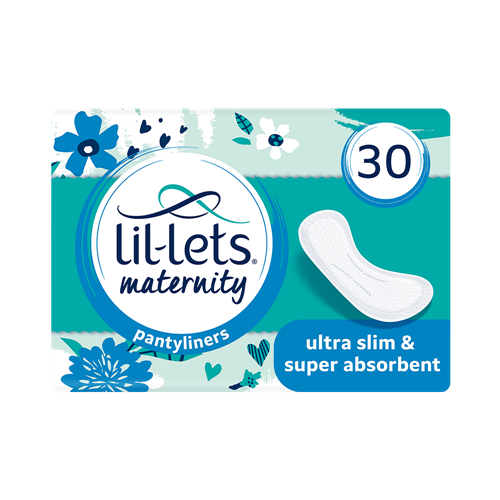With so many other signs and symptoms of pregnancy talked about, vaginal discharge in pregnancy often gets overlooked, so if you’re wondering why all of a sudden, you’re producing more discharge, or unsure what it’s supposed to look like during pregnancy, we’ve got the answers.
Yes, it is absolutely normal to experience an increase in vaginal discharge during pregnancy, in fact it can often be one of the first signs you’re pregnant!
Why…well once again we can thank hormones for these changes in vaginal discharge, and in particular oestrogen, resulting in an increase in blood flow to the vaginal area during pregnancy and because of this more vaginal discharge is likely to being produced.
Vaginal discharge during pregnancy is known as leukorrhea, it’s usually thin, milky white, and mild smelling. And its job is to help keep the vagina clean, preventing infections travelling from the vagina to the uterus, and as you may have already noticed the amount you produce can increase as your pregnancy continues.
Whilst both are a form of discharge, they both have different jobs to do in the body.
As your body prepares for childbirth, and typically in the later stages of pregnancy, the cervix begins to soften, thin out, and dilate in preparation for labour and delivery. As a result, the mucus plug is dislodged from the cervix and pushed out into the vaginal passage, you will most likely see this in your underwear, on your pantyliner, or on toilet tissue as you wipe, and some of you may now this as a ‘show’.
Losing the mucus plug is considered a normal part of the late pregnancy process and it can occur days, or even weeks before labour begins, think of it as a sign that your body is getting ready to give birth to your baby.
It's also possible for the mucus plug to be expelled gradually over time, rather than all at once, so don’t worry, sometimes you may not even notice when it happens.
Remember too, that losing the mucus plug doesn't necessarily mean that labour will start immediately, it's just one of the many signs that labour could be approaching.

Because during pregnancy you will most likely be producing more discharge than usual, you may want to switch to loose fitting cotton underwear, why because cotton is breathable and can help keep the area dry.
Pantyliners are a great addition too, as they are designed to absorb excess discharge and keep you comfortable, and the Lil-Lets Maternity Pantyliners are ideal for pre and post pregnancy.
Maintaining good hygiene is important at any time and not just when you’re pregnant, wash the vaginal area with warm water and mild soap, and avoid douching or using scented products that can irritate the area. And as your pregnancy progresses you may want to use Lil-Lets Maternity Wipes, they’re extra-large making it easier to reach around your baby bump.
Lil-Lets Maternity Pantyliners Lil-Lets Maternity Intimate WipesWhilst vaginal discharge in pregnancy is perfectly normal there are few signs you should look out for that may indicate an infection is present:
Abnormal discharge can be caused by:
Any unusual or concerning changes in discharge, including colour, consistency, or the amount produced, should be brought to the attention of your doctor, midwife or healthcare provider for evaluation and monitoring.
Here's everything you need to know about pregnancy-related incontinence. First lesson: it is way more common than you might think.
Pregnancy Related IncontinencePregnancy brings about many changes in your body, and maintaining intimate hygiene becomes especially important.
Intimate Hygiene In PregnancyBabies can be unpredictable, so we've prepared a handy hospital bag checklist to help you pack your bags in advance.
Maternity Hospital Bag Checklist
Discharge during pregnancy is known as leukorrhea, it’s usually thin, milky white, and mild-smelling, and chances are it will increase in volume as your pregnancy continues.
Whilst an increase in the amount of discharge you produce increases in pregnancy, if there is a change in colour, an unusual or strong odour, change in its consistency, like thick cottage cheese, you should speak to your doctor, midwife, or healthcare professional.
It's crucial to pay attention to any changes in vaginal discharge during pregnancy, whether that be a change in colour, consistency or you’re experiencing discomfort such as itching or burning. Trust your instincts and reach out to your healthcare provider if you have any concerns about your vaginal discharge during pregnancy. Your doctor can provide guidance, perform any necessary evaluations, and ensure that you receive appropriate care to safeguard your health and the health of your baby.